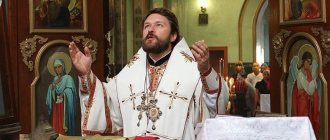.
Physical death in many cultures is not the end of a person’s spiritual journey. In Orthodoxy, the soul after death goes to heaven to God. To get there, you need to work hard during your lifetime, and the length of the ascent is 40 days. During this period, the spirit of the deceased not only says goodbye to loved ones, but also undergoes tests.
Orthodoxy's ideas about the soul
According to the Bible, the Creator created man in his own image and likeness. He endowed him with a soul. It cannot be seen or measured, but it makes a person human. Her peculiarity is that she always strives for God. She is also fair, wise and merciful.
In Orthodox teaching, the soul is immortal. Death is only the end of the physical body, so it should not be feared. After death, the spirit goes to God, going through several important stages. Orthodox believers recognize the existence of Heaven and Hell, and Catholics also recognize Purgatory.
No less important is the doctrine of the Last Judgment. The fate of all those who live and who once lived will be decided on it. Orthodox teachings believe that the Last Judgment will occur after the Second Coming of Christ to earth. Then it will be decided whether God will grant resurrection and eternal life.
There are still discussions among both believers and theologians about what happens to the soul at the moment of death, on its way to heaven. The interpretations are based on Holy Scripture, but there is not much information about this either. We must not forget about popular ideas - they have a completely unique vision of this path.
The idea of the afterlife in Islam differs from Christian dogma.
Where does the soul go after death?
There are several versions of where people live after death. Astrologers believe that the immortal soul ends up in space, where it settles on other planets. According to another version, it hovers in the upper atmosphere. The emotions that a spirit experiences influence whether it goes to the highest level (Heaven) or the lowest (Hell). In the Buddhist religion it is said that having found eternal peace, a person’s spirit moves into another body.
Mediums and psychics claim that the soul is connected with the other world. It often happens that after death she remains close to loved ones. Spirits who have not completed their work appear in the form of ghosts, astral bodies, and phantoms. Some protect their relatives, others want to punish their offenders. They contact the living through knocks, sounds, the movement of things, and the short-term appearance of themselves in visible form.
The Vedas, the sacred scriptures of the Earth, say that after leaving the body, souls pass through tunnels. Many people who have experienced clinical death describe them as channels in their own body. There are 9 of them in total: ears, eyes, mouth, nostrils (separately left and right), anus, genitals, crown, navel. It was believed that if the spirit came out of the left nostril, it went to the moon, from the right - to the sun, through the navel - to other planets, through the mouth - to the earth, through the genitals - to the lower layers of existence.
Souls of dead people
As soon as the souls of deceased people leave their physical shells, they do not immediately understand that they are in a subtle body. At first, the spirit of the deceased floats in the air, and only when he sees his body does he realize that he has separated from it. The qualities of a deceased person during life determine his emotions after death. Thoughts and feelings, character traits do not change, but become open to the Almighty.
Soul of a child
It is believed that a child who dies before the age of 14 immediately goes to the First Heaven. The child has not yet reached the age of desires and is not responsible for actions. The child remembers his past incarnations. The First Heaven is the place where the soul awaits rebirth. A deceased child is awaited by a deceased relative or a person who loved children very much during his lifetime. He meets the child immediately after the hour of death and escorts him to the waiting place.
In the First Heaven, a child has everything he wants, his life resembles a beautiful game, he learns goodness, receives visual lessons on how evil deeds affect a person. All emotions and knowledge remain in the baby’s memory even after rebirth. People who live nobly in ordinary life are believed to owe these lessons learned and experiences in First Heaven.
Soul of a Suicidal Man
Any teaching and belief states that a person does not have the right to take his own life. The actions of any suicide are dictated by Satan. After death, the soul of a suicided person strives for Paradise, the gates of which are closed to it. The spirit is forced to return, but it cannot find its body. The ordeal lasts until the time of natural death. Then the Lord makes a decision according to his soul. Previously, people who committed suicide were not buried in the cemetery; suicide items were destroyed.
Animal souls
The Bible says that everything has a soul, but “they are taken from dust and will return to dust.” Confessors sometimes agree that some pets are capable of transformation, but it is impossible to say exactly where the animal’s soul ends up after death. It is given and taken away by the Lord himself; the soul of an animal is not eternal. However, Jews believe that it is equal to human meat, so there are various prohibitions on eating meat.
Life in the human body
A person’s entire life is aimed at preparing for the transition to the Kingdom of God. Therefore, you need to be virtuous, not sin, and lead a correct lifestyle. Unlike Buddhism and the teachings of reincarnation, in Orthodoxy a person has only 1 life to live righteously. This concept includes:
- regular prayers;
- visiting temples;
- repentance for sins;
- renunciation of sin;
- fast;
- ascetic lifestyle;
- mercy and virtue.
Orthodoxy has a fairly rigid belief system. Thus, atheists have no chance of getting into Heaven, just like suicides.
What happens to a person when he dies
Having completed his life's journey, a person dies. From the physiological side, this is the process of stopping all systems and processes of the body: brain activity, breathing, digestion. Proteins and other substrates of life decompose. Approaching death also affects a person's emotional state. There is a change in the emotional background: loss of interest in everything, isolation, isolation from contacts with the outside world, conversations about imminent death, hallucinations (past and present are mixed).
First two days
Death is considered the rebirth of the soul. The physical shell (body) decomposes and is given over to the earth. And the immaterial does not dissipate or disappear, but goes to its Creator - God. The key point after death is that all senses and consciousness are heightened, not weakened.
After death, physical vision stops, but spiritual vision begins. This is how a person realizes how he lived, what he sinned about and sees the true nature of things. The most important and real value is God, spiritual aspirations, and not material wealth.
Good and evil spirits meet the soul after death
After leaving the body, the soul encounters good and evil spirits. There are mentions that these could be friends and enemies, relatives, evil spirits. This is not always a pleasant meeting with dear people; often there are serious trials and temptations. It is important that the soul inclines not towards evil spirits, but towards good ones, i.e. accepted God and continued her journey with the Angels.
What happens next is:
- For two days, the deceased can visit his favorite places on earth or stay at home next to his loved ones. The spirit does not have the ability to communicate with the living, but it can make itself known through extraneous noise. People can understand the presence of a soul if they hear a voice or characteristic everyday sounds: how a person usually makes coffee in the morning, washes his face, etc.
- For the righteous, the ascent may begin earlier than the designated period. This is due to the fact that they are not attached to worldly life, their soul strives for God, nothing holds it back.
But in Orthodox literature they insist that wandering around expensive places is not at all necessary for an ordinary person. This is just a model that may change. Cases of the deceased appearing in their usual form after the funeral or appearing in a dream are also described. This happens for a specific purpose according to God’s plan and only means that for 1-2 days the soul is on earth, near its usual environment. Usually by the end of 2-3 days the period comes to an end and the next stage begins.
The prospect of creating eternal life
Biologists and other groups of scientists are considering the prospect of extending life on earth. Various ways to slow down the aging of the body are being studied, but so far scientists' research in this area has not brought significant results. At the same time, the technology of freezing people—cryonics—is being developed. Supporters of this science believe that it is necessary to preserve bodies, and in due time, when medicine learns to stop the aging process and treat diseases, to “resurrect” them.
The cryopreservation process is fairly simple, but remains too expensive for most people to use the service. In Russia, freezing a whole body costs $36,000, and sending a head or brain for storage costs $15,000. The main problem, which has not yet been fully resolved, remains the subsequent process of “unfreezing” the body and restoring brain functions.
American scientists claim that the “revitalization” technology is available to them. Experiments have already been carried out to bring animals and even humans back to life.
Another possible way to achieve immortality is a gradual “upgrade” of a person using transplantation. Scientists are already able to grow synthetic tracheas from patient stem cells. At the Texas Heart Institute, regenerative medicine director Doris Taylor built a “bioartificial” heart from rat tissue.
Brain emulation is designed to solve the problem of information transfer, that is, transferring information from human memory to an electronic medium. In the future, this will make it possible to make a digital version of the brain. Genetic engineering can make a revolution in the technology of creating immortality; you just need to find a stimulator for awakening the youth gene.
One of the ways to achieve immortality is nanotechnology. Experiments are already being conducted on the use of nanorobots in surgery. In the future, they are planned to be used for operations to replace individual parts of the body and even the genome. Robert Etinger, the founder of cryonics, is confident that nanorobots will help in the future in defrosting and “revitalizing” people.
The direction in science associated with the study of telomerase, an enzyme that helps copy chromosomes, promises significant prospects. In the body, the function of a counter is performed by an extension of the chromosome - the telomere. By using telomerase, it is possible to adjust the length of telomeres and thus control the aging process of the body. The enzyme is not active in all cells, but only in stem and germ cells. It is assumed that unlocking it in other cellular structures will help obtain the “recipe for immortality.”
Russian scientists note that the cloning of the human body is still hampered by legal barriers. But they will be removed after the first successful head transplant operation. Candidate of Economic Sciences Danila Medvedev claims that after 15 years, scientists will be able to transplant the brain into a newly grown body or replace diseased organs with artificial ones.
ordeals
The ordeal is presented as a long passage through a legion of evil spirits. They want to seduce the deceased with sins, accuse him, doubt himself and the Creator. It is believed that there are 20 stages, i.e. 20 ordeals. After passing one, the soul moves on to the next.
Ordeal is a temptation to sin. This is one of the most important parts of the journey after death. Only after successfully passing the tests can a soul be allowed to live with God in Paradise. And if she stumbles, she will immediately be thrown into fiery Gehenna.
Fresco of the Tollhouse Painting of the Rila Monastery in Bulgaria
The quantity and quality of ordeals vary in descriptions of Orthodox literature. But all sources note that at this stage the deceased needs the support of the living. You need to pray for him so that he successfully passes all the tests, does not be tempted and gets to God.
Ordeal 3rd. Condemnations and slander
The trials themselves are often mentioned in church services, so their existence in the context of Orthodoxy has been proven. The blessing and parting words for going through the ordeal are read during the service over the deceased in the “Canon for the Exodus of the Soul.”
Purgatory
Catholics have a belief in Purgatory. According to their theory, in Purgatory the soul is freed from committed deeds, if these are not mortal sins. After purification, she goes to heaven. Catholics believe that even the righteous must remain in Purgatory for some time in order to appear before God without a single sin.
Only Protestants deny the existence of this point. Staying at liberation from sins does not have a limited time (unlike ordeals and earthly sojourn in Orthodoxy). The soul is in Purgatory until it completely gets rid of sins and earthly attachments.
Purgatory
But not all souls are destined to go to Purgatory:
- if a person repented before death;
- innocent (a small child is considered sinless and goes to Heaven);
- pagans and unbaptized babies go to Limbo: this is something other than Heaven and Hell.
The ideas of Orthodox Christians and Catholics are similar, but still different. In each branch of religion there are 2 key concepts: Heaven, where pure, sinless souls go, and Hell, where there is a designated place for sinners.
Ideas about Heaven and Hell
The Bible does not have many specific pictures of what will happen to a person after death. What is known is that the world awaits the Kingdom of God on earth, when everyone will be rewarded according to their deserts. But until it comes, souls go to Heaven or Hell after a private trial.
They are not materialized in the holy book. Rather, Hell and Heaven are not specific places, but the state of the spirit of the deceased. Traditional ideas about them appeared through popular reflection on Scripture. Dante’s work “The Divine Comedy” meant a lot to people.
What's in Paradise
In popular belief, Paradise is a certain place in heaven where the souls of the righteous are collected. They don't need food, drink or sleep. They are with friends and relatives and are awaiting their return to earth after the Last Judgment.
In Paradise there is no need to work or do other things. In canonical Orthodoxy it is identified with the love of God. To be loved and to love the Creator is Paradise. Those. this wonderful place is in everyone’s soul. And after death, a person turns his gaze inward and finally comes to the Creator.
Pictures of Hell
People imagine Hell in different ways. But there are common features:
- there are sinners, unbaptized, pagans;
- the soul is doomed to eternal torment;
- it is inhabited by devils;
- Hell is headed by Satan, also known as the fallen angel Lucifer.
There is an opinion in Western culture (partly thanks to Dante) that the most painful point of Hell is not hellfire, but ice. He binds sinners halfway, preventing them from moving, they experience suffering and pain.
It is known that devils keep an eye on sinners so that they are punished. Often they suffer from what they sinned during life. The essence of Hell is that souls are doomed to eternal torment until the Last Judgment.
The image of Satan is also interpreted in different ways. According to one legend, he went against God, so he was thrown underground and doomed to rule Hell. In canonical Orthodoxy there is no detailed description of the scenes of torture.
Rather, it is presented as torment from the love of God. Souls who do not believe in the Savior suffer from the fact that they did not believe. But this does not mean that God does not love sinners. On the contrary, he loves everyone, but some people reject this. This is the torment of sinners in Hell: to refuse the love of God and eternal life, salvation and resurrection.
The church fathers call for careful study of the Bible so as not to believe in popular fiction. They regularly debunk myths about existence after death:
- one cannot be saved by repenting only before death;
- it will not work out to sin, and then go through ordeals and go to Paradise;
- God does not punish sinners by sending them to Hell.
The Almighty is, first of all, Love in its highest manifestation. And the soul of the deceased can either accept it and love it, or refuse it and punish itself. And popular ideas arose because the Bible is extremely difficult to interpret.
Material Hell and Heaven arose when man interpreted the Word of God in his own way. It is much easier to explain to children and people far from religion why you need to be righteous and not sin.
Orthodoxy: eternity and how death appeared
Eternity lies beyond human logic. Not in the sense that it is illogical, but in the sense that it, in principle, lacks the assessments with which a person lives on Earth.
Eternity cannot be described in words, and anything described in words is no longer eternity. In eternity there is no time, distances and relationships in the form in which we are accustomed to seeing them on earth.
Why does the soul not exist in eternity from the very beginning?
Why do we need life on Earth, which we live, by and large, in suffering? Why do we need childhood, youth, mature years and old age? Any of these periods is associated with constant hardships and overcoming oneself - why not, from the very beginning, a soul filled with joy, stay in eternal life?
Once upon a time it was like that. This is described in the very first chapters of the Bible.
Once upon a time, man lived together with God and only with Him alone. Man had Eternal Life, being himself like God. Man gave every animal and bird a character - a “Name” - and, in fact, created them.
But then death came. In the Bible, this most tragic moment in human history is described as the day when Adam and Eve, disobeying God, ate the forbidden fruit. This damaged human nature and gave rise to that same sin in their (and now our) nature - man became mortal, time appeared in his life, he was expelled from Paradise.
Man essentially became what he is now - suffering and lonely. Cut off from eternity. Doomed to die. With a lifespan of around 100 years.
Soul until the Last Judgment
There should be 2 Comings of Christ to earth. The first has already happened: Jesus died, taking upon himself the sins of men. And then he was resurrected, returning to earth. The First Coming was predicted in the Bible, but did not occur at the appointed time. Therefore, in Orthodoxy, the Second is expected not on a specific date, but according to omens.
After the ordeal, the soul undergoes a private trial, i.e. it is decided whether she will go to Heaven or Hell. Then it exists by distribution until the Second Coming. Some believe that even sinners can gain eternal life if they atone for their guilt in Hell.
Hell is not the final place of the spirit. By getting rid of sin through torment and purification, you can get a chance for salvation after the Second Coming of Christ. In this case, the concept of Hell is likened to the Catholic Purgatory. Only the latter’s soul does not suffer, but simply realizes its mistakes.
What is death in Christianity
Orthodoxy does not consider death something terrible or tragic. According to the doctrine, absolute death as such does not exist. The personality leaves his physical shell, goes to heaven in subtle form to meet God, after which judgment takes place, and the deceased is assigned a suitable place in heaven or hell, depending on his earthly deeds.
After death, the soul does not lose human memory, reason and feelings. But he can no longer influence the physical objects of the surrounding world: remove things, touch animals or people, talk with others. This doesn't mean he needs to be numb, it just goes to another level where communication happens telepathically.
Christianity requires believers to remember death throughout their lives. This is not something to be feared, sought for, or avoided. The memory of the transience of life helps not to become attached to material things and gives hope for a better fate in another world.
The Bible invites believers to live for eternal life in heaven without paying too much attention to mortals on earth. Beauty, wealth and power are transitory values; they turn into dust over time. A Christian who understands this truth is not afraid of death.
Second Coming of Christ - Resurrection
After the Apocalypse, the second coming of Jesus Christ to earth will occur. He will return and give eternal life to those who are saved. They will be reunited with their incorruptible bodies and taste the joy of earthly existence with the Savior.
And those who did not accept the love of the Lord will be punished and cast into Hell along with their earthly bodies. The devil and his minions will also be overthrown, and the fire will be such that only God can create. He will return to earth not to forgive sins, but to judge the souls of the living and the living. The exact date is unknown, but the New Testament provides harbingers of the event:
- the emergence of false Christs;
- impoverishment of faith and love;
- fear of disasters;
- the appearance of the Antichrist (or the lawless one).
Now Christ has come to judge. He is surrounded by Angels and everyone will be able to see his procession.
Find out also about when the soul enters the body of a child: before or after birth.







